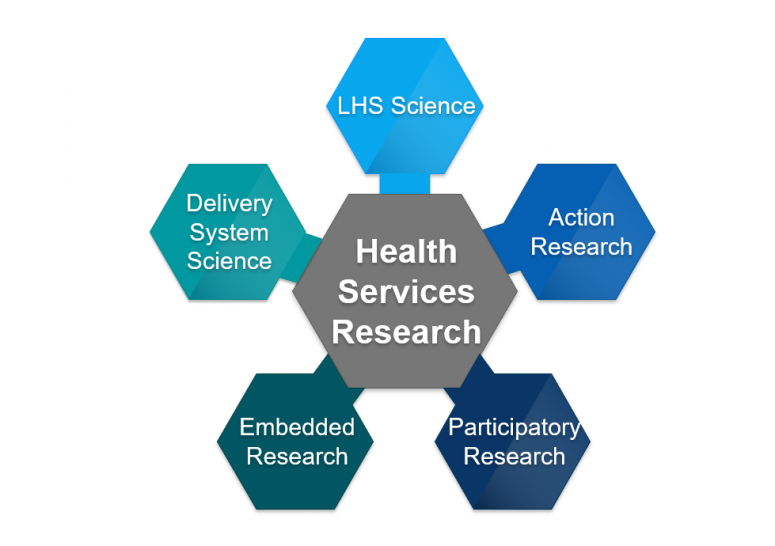
Many researchers are not quite sure what learning health system (LHS) science entails and how this does or does not relate to their own health services research conducted in real world settings. Simply put, LHS science is embedded research that aims to address problems and challenges in quality, safety, and affordability that are encountered in practice by learning from the data generated as part of health care operations. As the opportunity for applying the rigor of research to problems encountered by health care systems has become more mainstream, we draw on work that has been labeled differently over time: participatory research, action research, embedded research, delivery system science, and learning health system science.
Whatever you call it, it is still health services research conducted in real world settings. Weaving together the tools and approaches from these various perspectives holds promise in advancing our science, its relevance, and its applicability to solve the problems of health care.
Creating a community of practice to advance health services research in health care delivery is one goal of the LHS Interest Group at AcademyHealth. Such a community can support joint problem-solving, offering a venue for those with common interests to exchange ideas about what has worked in their setting when methodologic, analytic or operational challenges are encountered. Long time AcademyHealth members might recall the Electronic Data Methods Forum as a similar community of practitioners in both academic and real-world health systems, who were working with data from EHRs to conduct their research, and came together regularly to share and learn from one another. The LHS Interest Group recently launched an analogous effort to broaden our reach in creating a common basis for shared learning via a recent webinar and an upcoming Challenge Contest, further described below.
The recent webinar hosted by the LHS Interest Group on Navigating Ethical Challenges for Embedded Research in Learning Health Systems featured Dr. Jodyn Platt from the University of Michigan Medical School Department of Learning Health Sciences. As the concept and practices underpinning the LHS continue to mature, so must our understanding of ethical facets. Dr. Platt outlined unique considerations for embedded research, including informed consent, participant engagement, disclosure of research activities and establishing trust, offering examples from her own research. She offered an especially germane insight for LHS research related to risk, observing that data we use in embedded research may contain embedded biases, and that users of EHR data must be vigilant about data equity. Participants engaged in a lively Q&A with Dr. Platt, signaling great interest in the ethics of LHS science.
The LHS Interest Group Steering Committee is also offering a special Challenge Contest. The call for submissions is now open, and entries are due on January 21, 2022. We invite summary descriptions of real-world problems in dynamic settings. Ten illustrative and generalizable challenge cases will be selected via peer review and presented at the ARM LHS IG session; selected cases will also be published in The LHS Journal; and selected authors will receive $1,000 stipend that can be applied to ARM registration, AcademyHealth Annual membership, and/or travel to the ARM. We anticipate the Challenge Contest entries and discussion at the ARM LHS IG meeting will lead to a rich experience for participants. Submit entries and any questions to the LHS IG via lhs_ig@kpchr.org. Our open forum does not require membership in the LHS Interest Group, but all AcademyHealth members are welcome to participate.
To cement the relevance and applicability of health services research in real world health care settings, we must develop and adapt our designs and methods to meet unique needs and to achieve transformative innovation. The pace of change in health care requires nothing less.